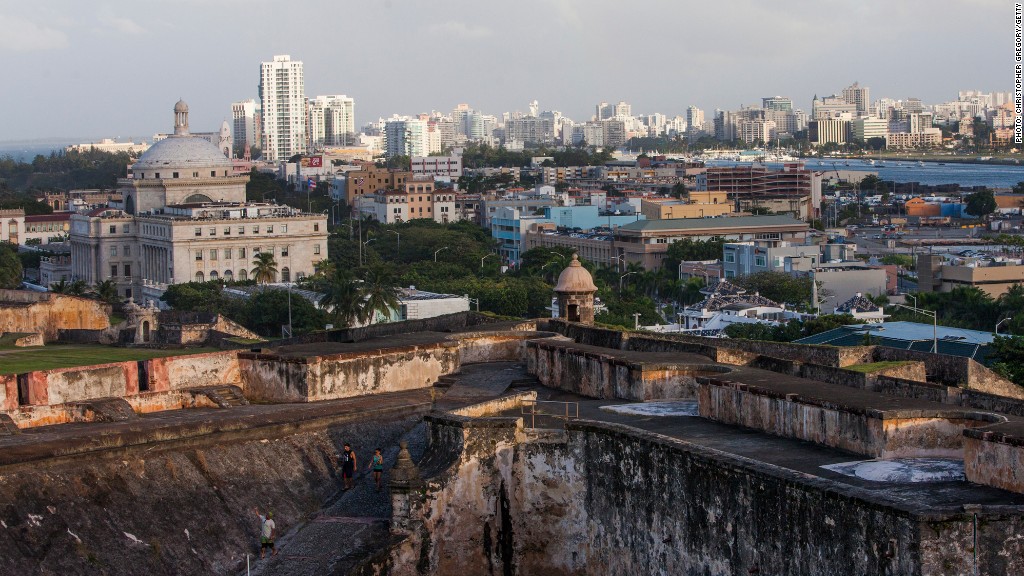
Puerto Rico's governor has a message for Washington D.C: change the law, we want the right to declare bankruptcy.
On the brink of default, Governor Alejandro García Padilla demanded that the U.S. government allow Puerto Rico, a commonwealth, access to chapter 9 bankruptcy. That's what Detroit used when it went belly up. At the moment, only cities, towns and other municipalities are able to declare bankruptcy.
"We cannot allow them to force us to choose between paying for our police, our teachers, our nurses, and paying our debt," Padilla said in a televised announcement Monday night in Spanish. "We have to act now."
Puerto Rico is running out of time. The island owes $73 billion that it can't pay. Its debt is already junk grade and has one of the lowest possible ratings.
"Now is the moment for us to call on Washington for concrete action," Padilla said, referring to the need to lobby Washington for change on Chapter 9.
The governor compared the island's financial situation to Detroit's, but unlike Detroit, Puerto Rico's only option is to settle its debt with its creditors on its own, which would take years.
Related: Why Puerto Rico is in a 'death spiral'
The first domino could fall on Wednesday when Puerto Rico's government-run energy company, PREPA, has a debt payment due. PREPA almost certainly can't make the payment and is likely to default. That could trigger other Puerto Rican bonds to default later this year.
Padilla didn't mince words about the severity of Puerto Rico's debt crisis. It's huge and the island can't pay its debts. He offered the start of a proposal to get the island back on tracking by calling for "profound changes" to the Puerto Rican government.
He has appointed a "working group" to create a restructuring plan to be completed by August 30. As part of that plan, he anticipates that bondholders could be waiting years to be repaid. He argues that Puerto Rico needs to use some of the funds that would otherwise go to creditors to invest in its economy so it can grow its way back to financial stability.
The island has been experiencing a population exodus with mass migration to the mainland U.S. as people search for jobs and better opportunities. That reduces the tax base and makes it even more difficult for Puerto Rico to pay back its debts.
Many experts believe the island's creditors will have to take a big discount, or "hair cut," to reach a settlement.
Padilla outlined several initiatives, such as reducing government spending and strengthening ties with private business, to help restore economic growth to Puerto Rico, which has been in recession for years.
But he was clear: no matter what, the road ahead will be difficult for Puerto Rico.
"It will be difficult," Padilla says about the island's future. He added: "The size of this debt prevents us from getting out of the cycle of recession and contraction."


